The world of English is not just American and British English
- Release date: Jan 07, 2025
- 3321 Views

The world of English is not just American and British English
English is spoken all over the world, but it is said that it can be broadly divided into American English and British English. However, which is the mainstream in the countries where English is actually spoken? And what are the differences in the level of understanding and image of English in each country? We conducted a survey to find out these points.
For those interested in learning more about the “average American lifestyle,” please also check out this article.
What's the average American's life like? Understanding the “average” of America's diversifying consumers
・America that values the individual
・America that seeks rationality and efficiency
・Values placed on durable goods
etc.

Geography and history of English-speaking countries
We have organized the regions and histories of the English-speaking countries that were the subject of this survey.
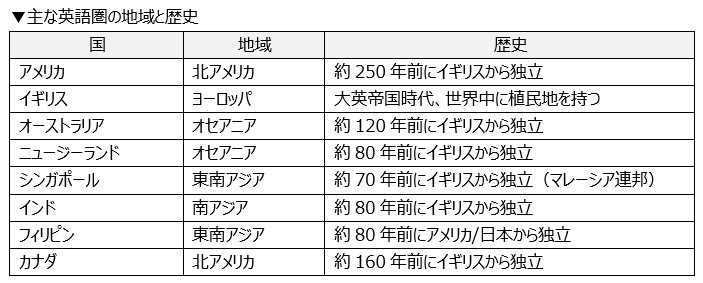
This shows that all of the countries except the Philippines were former British colonies, reaffirming the extensive influence of the British Empire.
Considering factors such as the timing of independence and geographical conditions, it can be inferred that Canada and the Philippines are more strongly influenced by American English, while the other countries are likely to be more strongly influenced by British English.
The Relative Strength of American English and British English as Seen Through Search Data
For example, the word meaning “エレベーター” is “elevator” in American English and “lift” in British English—one of many cases where different words are used for the same concept. To examine which variety of English is more prevalent, we used a search engine (Bing) to analyze how frequently specific terms are used by country.
Specifically, we conducted exact-match searches by enclosing keywords in quotation marks (“ ”) and applied site-based country filters (more precisely, country identifiers in domain names).

The following are search results for “gasoline”, “diapers” and “take-out” (excluding the US due to search conditions).

If American English is dominant, the country is shown in blue; if British English is stronger, it is shown in red; and if there is no significant difference, it is shown in yellow. As expected, American English tends to dominate in Canada and the Philippines.
On the other hand, even in countries such as Singapore and India, which are often thought of as being in the British English sphere, American English is more prevalent in some expressions, indicating that both varieties of English coexist.
English self-awareness
From here, we would like to introduce the results of the questionnaire survey we conducted. We conducted an online survey using the following specifications.

First, when this survey asked the direct question, “What kind of English do you speak?”, it yielded some interesting results.
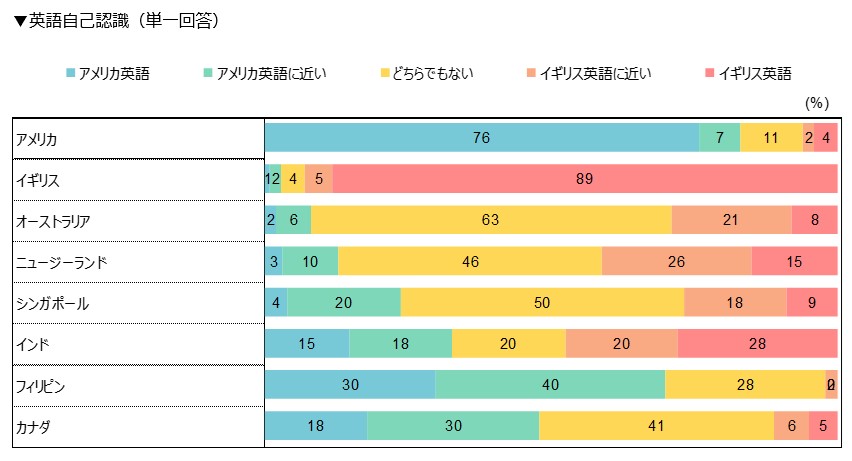
I had imagined that the results would be similar to the number of search hits, but in many countries, the number of people who chose “neither” was higher than I had expected. In particular, in Australia, New Zealand and Singapore, “neither” was the largest group, and it was clear that people in these countries have a strong awareness that their country's English is unique. When the number of people who chose “neither” is excluded, Singapore and India again show a distribution of American and British English, and it can be inferred that there is a situation where they are mixed in various ways.
English comprehension
Then, on the contrary, how about the comprehension level of each English language? We asked, “For you, is ●● English easy to understand?” We asked the respondents about their level of comprehension by putting the name of the country in the “●●” and “●●” boxes. The results for American English and British English are shown below.
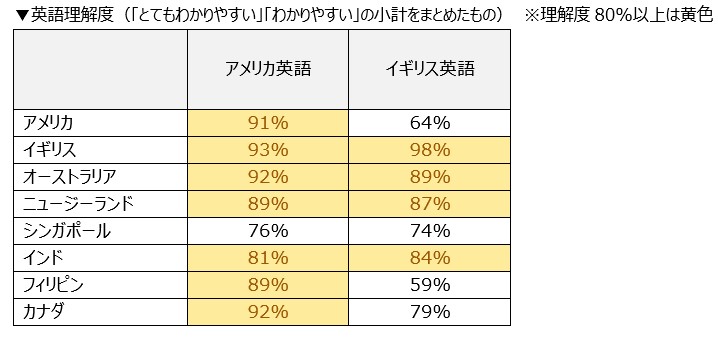
Although Asia shows slightly lower levels, American English, which has a strong global presence, achieved a high level of comprehension overall. Even in countries where British English is dominant, comprehension of American English is high, likely because of frequent exposure to American English through movies and television.
Since many countries indicated that their English is neither British nor American English, we next turn to comprehension of varieties other than British and American English. The following shows the results after adding English comprehension data from five additional countries to the figures above.

Overall, green cells with low levels of understanding were the most prominent results. Australian English (OZ English) and New Zealand English (Kiwi English) showed some understanding outside of their own countries, with Australia and New Zealand in Oceania showing high levels of mutual understanding as neighboring countries. On the other hand, Singaporean English (Singlish), Indian English (Hinglish), and Filipino English (Taglish) in the Asian region have low levels of mutual understanding, which may be seen as a sign that each country has developed its own unique English.
English Image
Finally, we would like to look at the image of each English language. Here we will look at the top 3 images of British English, American English, and the English of our own country.
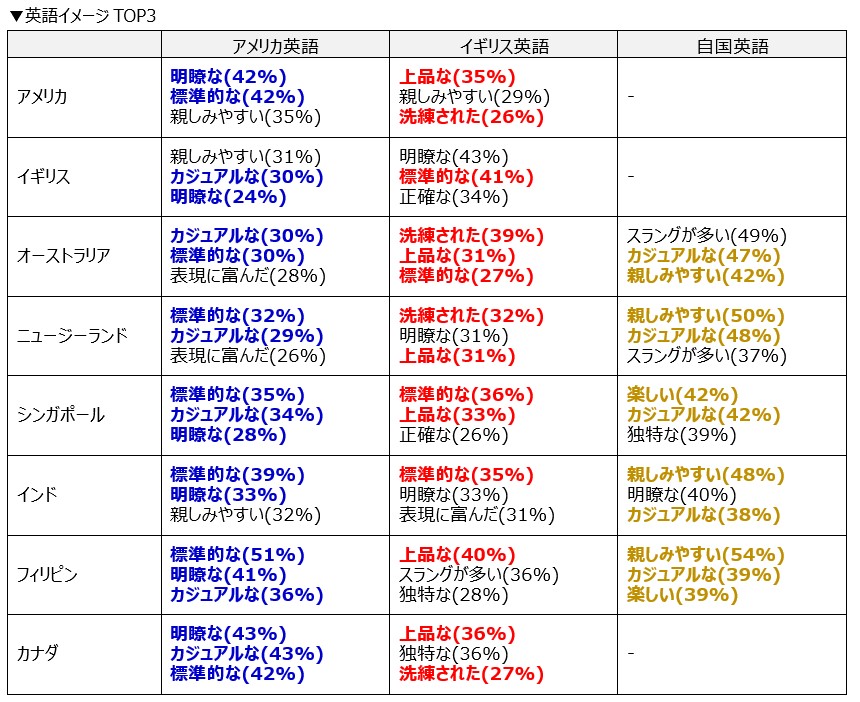
American English was ranked “standard,” “clear,” and “casual” by most countries. British English, on the other hand, was ranked most frequently for “elegant,” followed by “refined” and “standard,” indicating a strong image of “casual,” “friendly,” and “pleasant” English in their own country. In a rough summary, we can see the positioning of “standard American English,” “refined British English,” and “friendly and fun homegrown English.
In marketing, English-speaking countries are often less localized in communication with consumers than countries that have their own language, but pinpointing the use of friendly, homegrown English may help improve the image. We encourage you to look into the English expressions unique to each country.
Translated with AI Translator
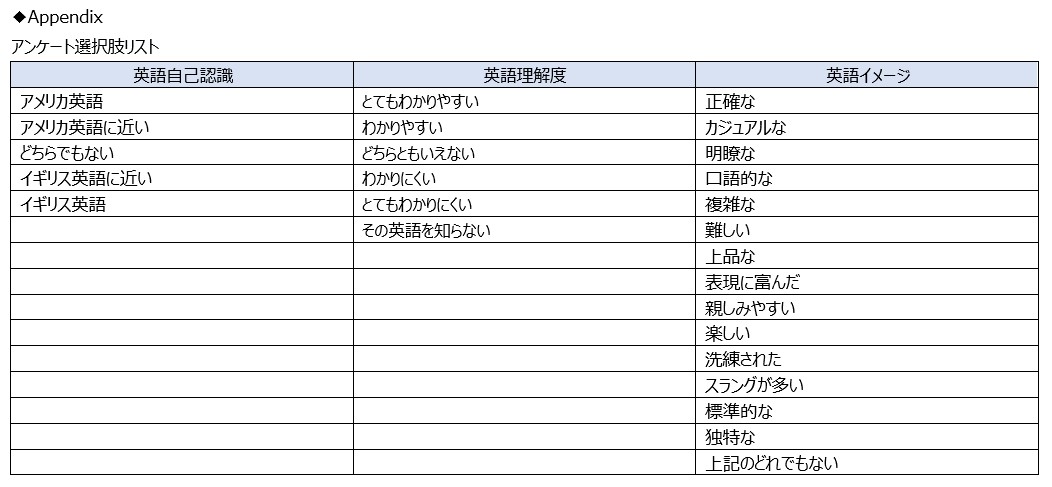
-

Author profile
Fumiharu Suzuki
Global researcher at INTAGE. After working as a working holiday in New Zealand and as a member of the Japan Overseas Cooperation Volunteers in Venezuela, he joined INTAGE and has been involved in global research using various methods for over 15 years. He has conducted research in over 30 countries and has gained a wealth of experience in a wide range of industries, including automobiles, food, electronics, and daily goods. He is currently working shorter hours due to childcare, and the only thing that bothers him is that he can't go on overseas business trips.
-

Editor profile
Risa Takahama
Global Market Suferのサイト作りを担当。
 Global Market Surfer
Global Market Surfer CLP
CLP